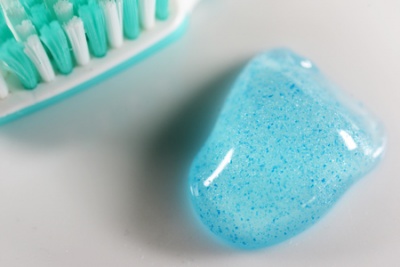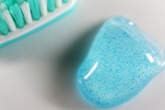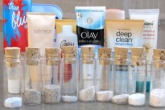Microbeads ban for January 2018 as Gove promises UK lead in ocean plastics fight
Plastic microbeads in cosmetic products are to be banned in the UK following a public consultation, new Environment Secretary Michael Gove confirmed during his first speech since returning to the government.

Microbeads are tiny pieces of plastic that are used as exfoliants in cosmetics and personal care products, such as toothpaste and face wash. These pieces of plastic, less than five millimetres wide, are so small that they can pass through water filtration systems and enter the the marine environment, where they are often confused as food and ingested by marine wildlife.
While the exact effects of these microbeads on marine wildlife, and on the health of humans that later eat them, are still being explored, ocean-dwelling creatures are still exposed to an incredible amount of microplastics every year – with estimates saying there are already more than 150 million tonnes of plastics in the ocean today, with 35,000 tonnes of microplastics entering the oceans every year.
Following a public consultation launched last year after increasing calls for a ban, the Department for Environment, Food and Rural Affairs (Defra) today outlined the scope and objectives of the government’s proposed ban in a summary of responses to the consultation.
The ban on the manufacture of products containing microbeads in England is expected to come into effect from 1 January 2018, while all sales will be prohibited from 30 June 2018.
Defra’s summary document states: ‘Based on this evidence, the overall objective of our proposals remains to ban the use of rinse-off plastic microbeads in cosmetics and personal care products where there is clear and robust evidence of harm to the marine environment.
‘We have developed precise definitions of ‘microbead’, ‘plastic’ and ‘rinse-off personal care product’ to clearly define the scope of the ban… We have retained the scope of rinse-off products, but are additionally working with the Hazardous Substances Advisory Committee (HSAC) to assess the case for addressing further categories of products.
The consultation summary says that enforcement will be carried out through a range out sanctions including variable monetary penalties, compliance notices, stop notices and enforcement undertakings, with the ban regulated by Trading Standards.
The document also states that the Devolved Administrations of Scotland, Northern Ireland and Wales ‘are considering appropriate enforcement mechanisms, regulators and timescales according to devolution settlements.’
Defra also seeks to reassure those who fear that such a ban would impact on imports, stating that many countries that the UK imports from already have similar bans or are considering implementing them, while it also called on manufacturers to ensure the sustainability of their products when sourcing alternatives for microbeads.
Gove displays environmental intentions
The government’s decision to introduce a ban was confirmed by new Environment Secretary Michael Gove in his first speech as Environment Minister at the WWF headquarters in Woking, entitled ‘Delivering a Green Brexit’.
During the course of the speech, Gove sought to display his environmental credentials, laud the government’s efforts to tackle plastic pollution and state his desire that the UK should be a global leader in environmental legislation following its impending exit from the European Union.
Aside from the announced ban on microbeads, Gove was keen to celebrate the government’s record on reducing plastic waste, pointing out that since the introduction of the five-pence carrier bag charge in October 2015, nine billion fewer carrier bags have been distributed, and £95 million has been raised for environmental and educational causes.
Gove said: “Eight million tonnes of plastic are discarded into the world’s oceans each year, putting marine wildlife under serious threat. In October 2015, the government introduced the five-pence carrier bag charge. Figures released today show that policy’s enormous success – nine billion fewer carrier bags distributed since the charge was introduced, a fall of 83 per cent. More than £95million raised from the charge has been donated to environmental, educational and other good causes.
“But there is more we can do to protect our oceans, so we will explore new methods of reducing the amount of plastic – in particular plastic bottles – entering our seas, improve incentives for reducing waste and litter, and review the penalties available to deal with polluters – all part of a renewed strategy on waste and resources that looks ahead to opportunities outside the EU.”

The government is also bringing forward legislation to help councils tackle littering from vehicles and will shortly publish our response to a consultation into increasing the fixed penalty fine for littering.
Actions speak louder than words - Lucas
Gove’s newfound concern for the environment is certainly laudable, but not everyone is convinced. Caroline Lucas, the Green Party co-leader, expressed her deep reservations about Gove’s sentiments, saying: “Gove’s overture to the environment might make him sound like a keen defender of nature but his government’s actions suggest that protecting our natural world is a long way from the top of their priority list.
“There is an environment-shaped hole in the government’s Brexit plans. They failed to announce any kind of environmental protection bill in the Queen’s speech, and we still don’t know how they will transfer enforcement powers from EU institutions to the UK.”
For more information on the proposed ban on microbeads, read the Defra summary of responses document in full.











